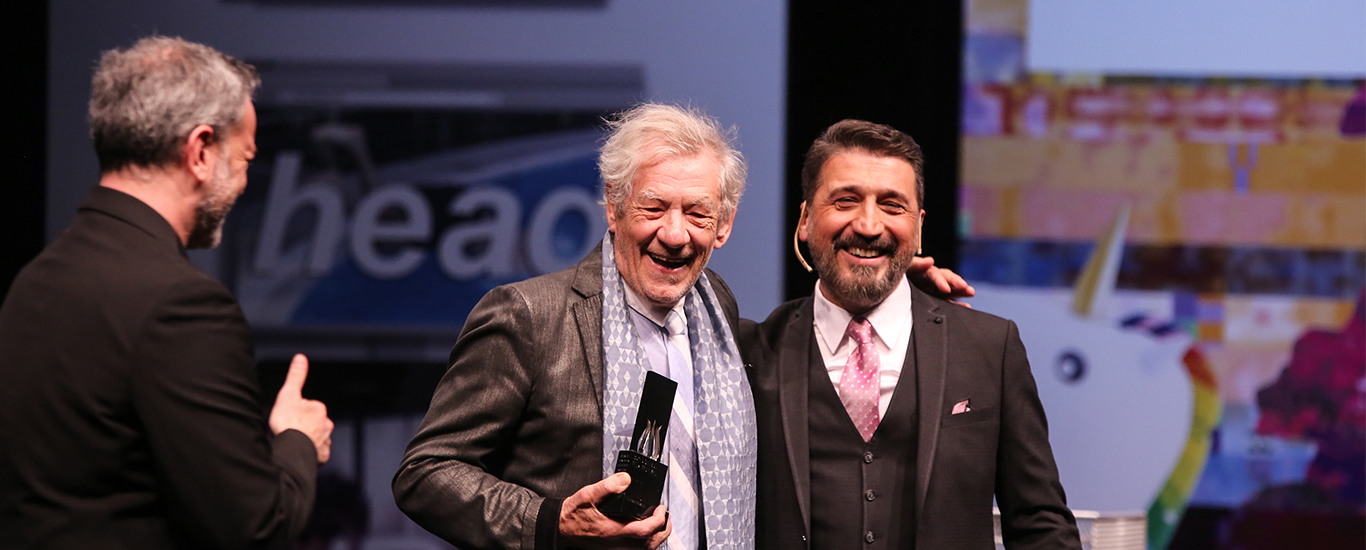Watching Richard III on stage, where even the nose bleed seats get their fair share of the villainyon display, is certainly a privilege. Ian McKellen’s terrific stage command isn’t necessarily rooted inthe majesty of his stature, but rather in his delicately balanced exuberant energy and the rhythm ofShakespeare’s words which he expertly captures. In the 1995 film adaptation of the play, he is theepitome of evil as he looks directly into the camera with refined gestures and piercing blue eyes, and soseductive, as all magnificent villains are, with an ambiguous charm and actorly ways.Brought up in the English stage tradition, he held the stage in Shakespeare plays at many esteemedvenues from the Royal Shakespeare Hall to the National Theatre and along the way enjoyed countlessprestigious awards from a Laurence Olivier to a Tony and was knighted by the Queen. Despite arelatively late start in cinema, he received Oscar nominations–first, for his elegant and humorousportrayal of James Whale, the director of early Frankenstein films, in Gods and Monsters (1998), andlater for his role as the wizard Gandalf in the Lord of the Rings (2001) trilogy. There is the immenselypopular Magneto in the X-Men series which embraces our differences. As a stooping old man in AptPupil (1998), he makes us uneasy as we watch him employ his grand talent that blurs the line betweengood and evil. In Mr. Holmes (2015) he moves us as a detective who swings between intelligence andforgetting. He came out in 1988 and his active support of many LGBT rights organizations is greatlyappreciated. An illustrious man who succeeds in every endeavor, Mr. McKellen is an indisputableglobal cultural icon. -Esin Küçüktepepınar









